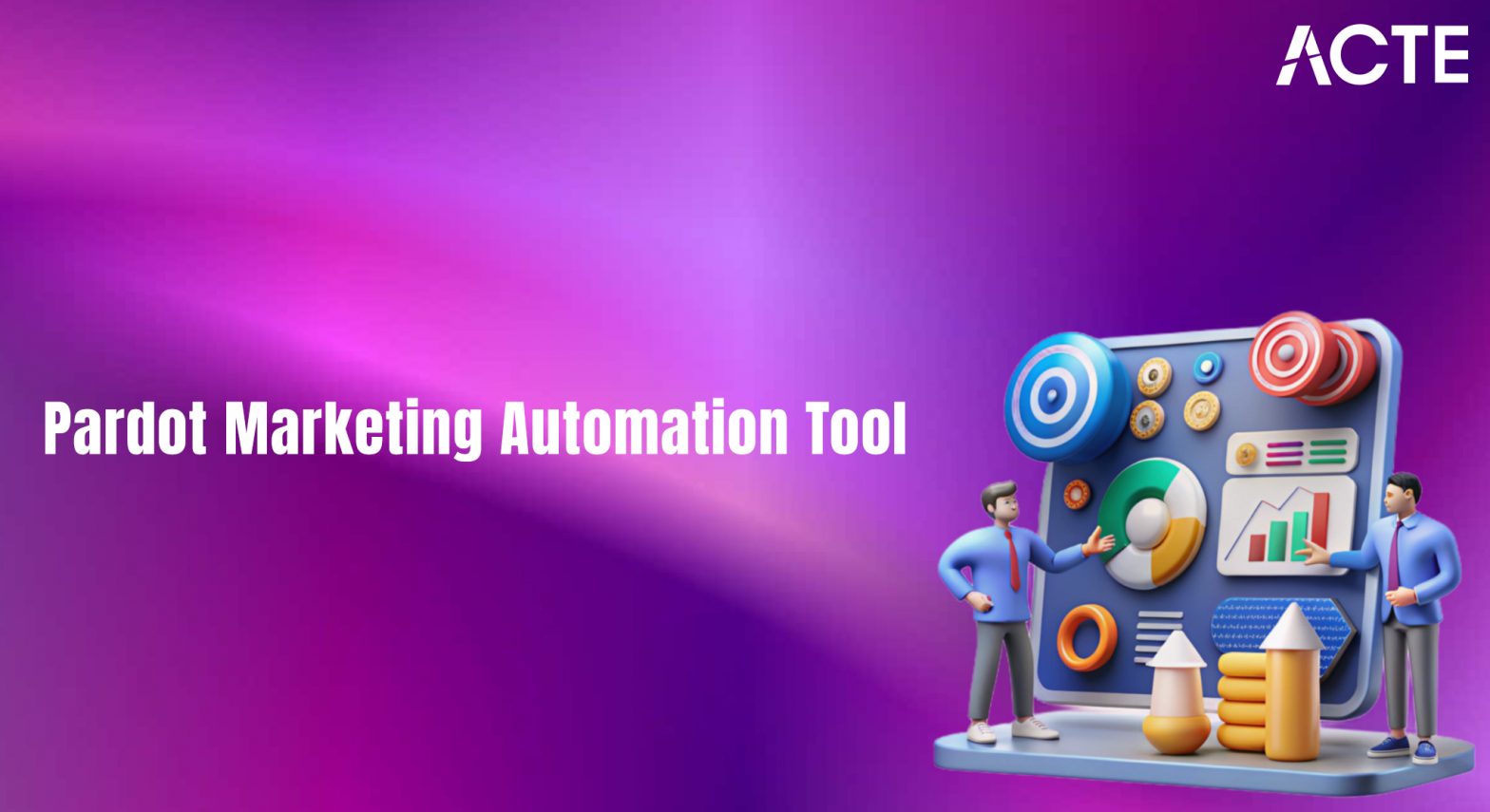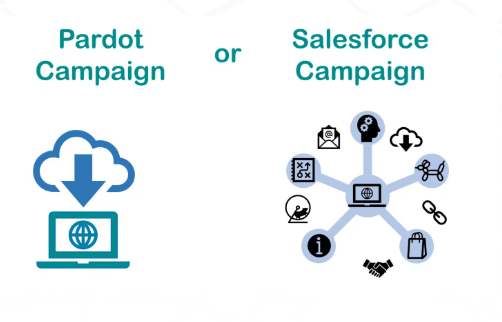
- Introduction to Salesforce Pardot
- Importance of Pardot in Marketing Automation
- Key Features of Pardot
- Lead Generation and Nurturing
- Email Marketing with Pardot
- Pardot Campaigns and Automation Rules
- Scoring and Grading Leads
- Best Practices for Pardot Implementation
- Real-World Use Cases of Pardot
- Conclusion
Excited to Obtaining Your Salesforce Certificate? View The Salesforce Training Offered By ACTE Right Now!
Introduction to Salesforce Pardot
Salesforce Pardot is a powerful and comprehensive marketing automation platform designed to help businesses streamline and optimize their lead generation, nurturing, and conversion processes. It enables marketing teams to create personalized and targeted campaigns, automate repetitive tasks, such as email marketing, lead scoring, and follow-ups, and effectively track and measure the performance of their strategies through advanced analytics and reporting. Pardot is particularly beneficial for B2B organizations, as it allows them to engage with prospects throughout the entire sales funnel—from initial interest to post-sale engagement—using behavioral tracking, segmentation, dynamic content, and integrated Salesforce Training initiatives. This ensures more relevant messaging and better user experiences. With its seamless integration with Salesforce CRM, Pardot enhances marketing and sales alignment by providing a unified view of the customer journey. This integration supports improved lead management, faster lead qualification, and better collaboration between sales and marketing teams, ultimately boosting overall conversion rates, accelerating deal cycles, and driving revenue growth. Pardot’s intuitive interface and automation capabilities make it a valuable tool for organizations aiming to scale their marketing efforts, improve operational efficiency, and deliver consistent, data-driven marketing experiences.
Importance of Pardot in Marketing Automation
Pardot plays a vital role in marketing automation by simplifying and optimizing complex marketing workflows. It automates lead nurturing, email marketing, and scoring, reducing the manual effort required from marketing teams. Pardot also enables personalized, data-driven marketing campaigns, which significantly improve engagement and conversion rates. The platform enhances marketing and sales collaboration by ensuring that high-quality leads are passed to sales teams promptly. The platform enhances marketing and sales collaboration by ensuring that high-quality leads are passed to sales teams promptly. With its advanced reporting and analytics capabilities, Pardot provides valuable insights into campaign performance, helping organizations make informed decisions, optimize their marketing strategies, and support scaling Salesforce DevOps efforts.

Key Features of Pardot
Salesforce Pardot offers a wide range of features to support marketing automation efforts.
- Lead Generation: Create landing pages, forms, and custom redirects to capture lead information.
- Lead Nurturing: Automate drip campaigns and send targeted emails based on prospect behavior.
- Email Marketing: Design responsive emails and measure their performance with detailed metrics.
- Scoring and Grading: Automatically assign scores and grades to leads based on their behavior and profile fit.
- Segmentation: Use dynamic lists and segmentation rules to target specific audiences.
- Automation Rules: Set up triggers to automate repetitive marketing tasks and processes.
- CRM Integration: Sync lead and prospect data with Salesforce CRM for seamless sales alignment.
- Analytics and Reporting: Track campaign performance and measure ROI with detailed reports.
Lead Generation and Nurturing
Lead generation is one of Pardot’s core capabilities, allowing businesses to capture and manage potential customers effectively. Marketers can create customized landing pages and forms to collect lead information. Pardot’s progressive profiling feature helps gather more data over time without overwhelming prospects with long forms. Lead nurturing in Pardot involves automated drip campaigns that deliver targeted content to prospects based on their behavior and engagement level. By sending relevant and timely messages, businesses can build stronger relationships with leads and guide them through the sales funnel. This automation improves efficiency and ensures consistent communication, enhancing the chances of conversion.
Excited to Obtaining Your Salesforce Certificate? View The Salesforce Training Offered By ACTE Right Now!
Email Marketing with Pardot
- Pardot’s email marketing functionality allows businesses to create, send, and track personalized Email Marketing campaigns.
- It offers a drag-and-drop email builder, making it easy to design responsive and visually appealing emails.
- Marketers can create automated email sequences based on prospect activity, such as form submissions or website visits.
- Pardot provides detailed email performance metrics, including open rates, click-through rates, and bounce rates.
- A/B testing capabilities enable marketers to test different subject lines, content, and layouts to optimize their campaigns.
- With dynamic content, businesses can personalize emails based on prospect attributes, increasing engagement and driving higher conversions.
Thinking About Earning a Master’s Degree in Salesforce? Enroll For Salesforce Masters Program by Microsoft Today!
Pardot Campaigns and Automation Rules
Pardot campaigns help marketers track and organize their marketing efforts. Each prospect is associated with a campaign, allowing businesses to measure the effectiveness of specific initiatives. Campaigns include landing pages, forms, emails, and automation rules, providing a comprehensive view of marketing activities. Automation rules in Pardot streamline repetitive tasks, such as assigning leads, tagging prospects, and sending follow-up emails. For example, an automation rule can trigger an email response when a prospect downloads a Recommended List of AWS Whitepapers. By using automation rules, businesses can enhance efficiency, improve response times, and deliver more consistent customer experiences.

Scoring and Grading Leads
Pardot’s lead scoring and grading features help businesses prioritize leads based on their behavior and profile fit.
- Lead Scoring: Assigns points to leads based on their interactions with marketing content, such as email clicks, website visits, or form submissions. Higher scores indicate more engaged prospects.
- Lead Grading: Evaluates leads based on their demographic and firmographic information, such as company size, job title, or industry. Grading ensures that leads fit the ideal customer profile.
By combining scoring and grading, businesses can identify high-potential leads and pass them to the sales team for timely follow-up, increasing the likelihood of conversion.
Preparing for Your Salesforce Interview? Check Out Our Blog on Salesforce Interview Questions & Answer
Best Practices for Pardot Implementation
To maximize the effectiveness of Pardot, businesses should follow several key best practices. Maintaining data quality is essential—cleaning and organizing data before importing it into Pardot helps avoid duplicate or inaccurate records. Effective segmentation using dynamic lists and segmentation rules allows marketers to target specific audiences more precisely. Lead scoring should be regularly reviewed and optimized to reflect evolving prospect behaviors, ensuring that only the most relevant leads are prioritized. Personalization plays a crucial role in engagement; leveraging dynamic content in emails and landing pages helps tailor experiences to individual prospects. Automation efficiency can be greatly improved by utilizing automation rules and Engagement Studio workflows, reducing manual effort and streamlining processes. Finally, ongoing testing and iteration based on campaign performance metrics enable continuous improvement and data-driven decision-making. By adhering to these practices and incorporating Salesforce Training, businesses can fully harness Pardot’s capabilities for efficient and impactful marketing automation.
Real-World Use Cases of Pardot
Several companies use Salesforce Pardot to optimize their marketing operations and drive business growth.
- B2B SaaS Company: A software company uses Pardot for lead nurturing by automating drip campaigns and scoring leads. The platform helps the company prioritize high-quality leads, reducing the sales cycle and improving conversion rates.
- Financial Services Firm: A financial institution uses Pardot for personalized Email Marketing. By segmenting its audience and sending tailored messages, the firm increases engagement and customer retention.
- Healthcare Provider: A healthcare company leverages Pardot’s automation rules to send follow-up emails to patients, improving communication and patient satisfaction.
These use cases demonstrate Pardot’s versatility in enhancing marketing efficiency and driving business success.
Conclusion
Salesforce Pardot is a robust and intelligent marketing automation platform that empowers businesses to generate high-quality leads, nurture them strategically, and convert prospects into loyal customers more effectively. Designed with B2B marketing in mind, Pardot enables organizations to automate repetitive marketing tasks, such as email campaigns, lead scoring, and segmentation, allowing teams to focus on strategy and engagement rather than manual execution. By streamlining lead management, improving workflow efficiency, integrating Salesforce Training, and providing real-time, data-driven insights into campaign performance, Pardot significantly enhances overall marketing productivity and strengthens sales collaboration. Marketers can easily track prospect behavior, personalize content based on interactions, and score leads accurately to ensure only sales-ready leads are handed off to the sales team. Its deep integration with Salesforce CRM ensures seamless data synchronization, allowing for a unified view of the customer journey and ensuring that both sales and marketing are working with up-to-date, consistent information. This alignment fosters faster sales cycles, improved lead prioritization, and more informed decision-making across departments. By implementing industry best practices, leveraging Pardot’s AI-powered features, and continuously optimizing campaigns through detailed analytics, businesses can drive higher engagement rates, increase marketing ROI, and achieve sustainable long-term growth.


